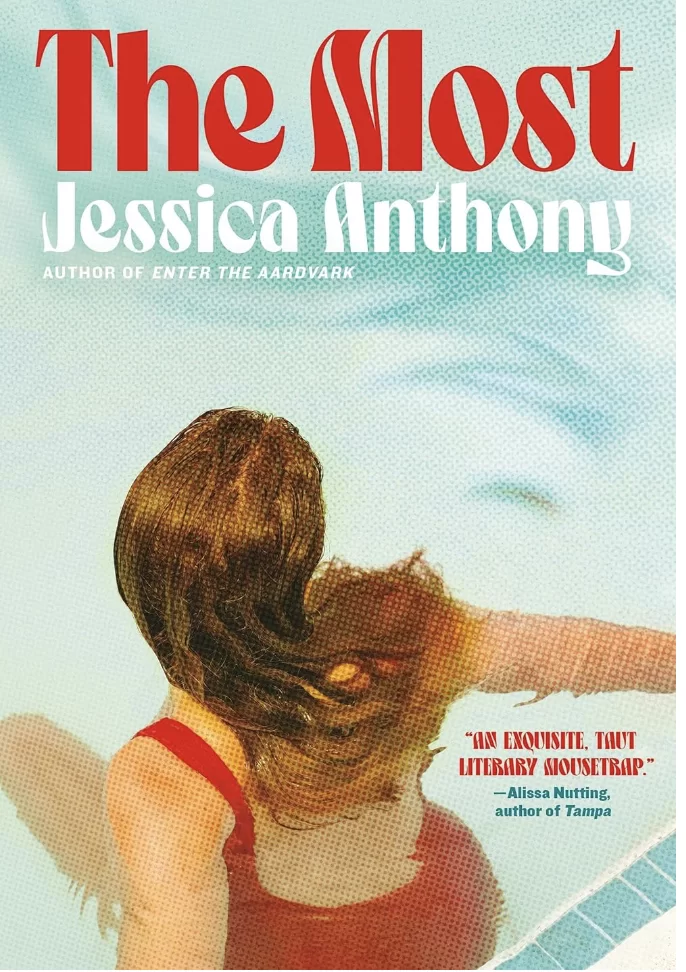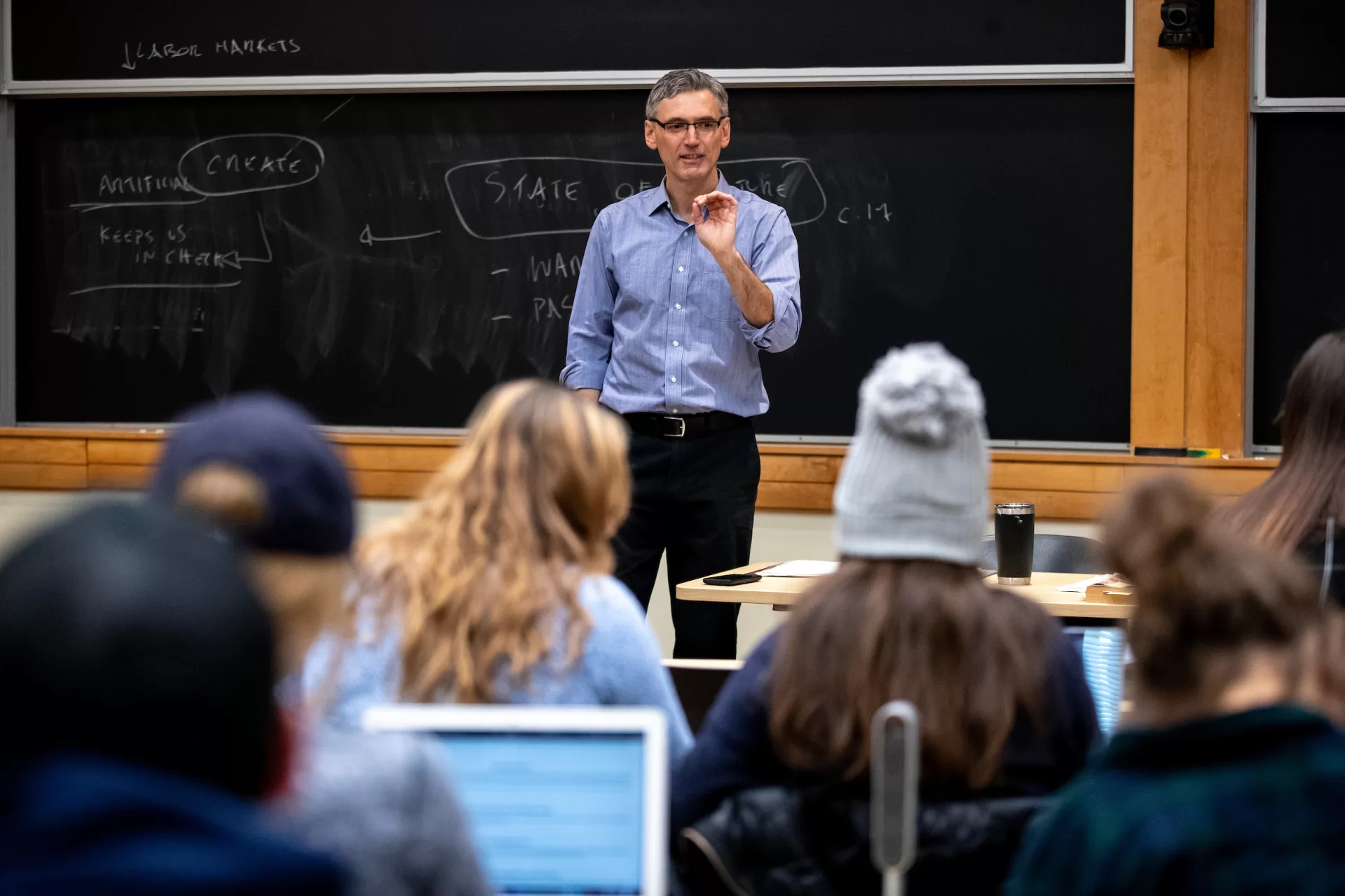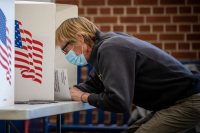
This month’s selection of media coverage highlighting the insight, expertise and achievements of Bates professors has a little bit of everything, from the presidential election to personal economics, news about a top literary award, and even, a major fish tale.
For a creative writing professor who is also a novelist, there’s nothing like being in the running for a major book award to spread the word about your novel in a wide variety of publications. That’s what happened to Lecturer in English Jessica Anthony ’96 this week when her novel The Most was longlisted for the National Book Award.
Meanwhile, economics professor Paul Shea weighed in on American personal savings rates for Marketplace and the newest issue of The Atlantic includes a deep dive by Tyler Austin Harper, assistant professor of environmental studies, into the secret world of extreme fishing. Wetsuit required. Read below to learn more and get links to coverage of other faculty members in the news.
Jessica Anthony ’96
National Book Foundation announces the longlist for the 2024 National Book Award for Fiction — People

The fourth novel by Lecturer in English Jessica Anthony ’96, The Most, made the National Book Foundation’s longlist of 10 books for its 2024 Fiction prize. The news was featured in numerous outlets, including The Washington Post, Vulture and The New Yorker, along with People magazine.
Here’s what the National Book Foundation had to say about Anthony’s book:
“This year’s Fiction Longlist features two titles that interrogate the role of gender in marriage, in sex, and in artmaking. On an unusually warm Sunday in November, housewife, mother, and former tennis champion Kathleen Beckett puts on her old, red bathing suit, enters her apartment complex’s semi-abandoned pool, and refuses to come out. Set over the course of eight hours, Jessica Anthony’s The Most paints an intimate portrait of marriage in the late 1950s — and the secrets, expectations, and lost loves that tells the story of one seemingly unremarkable couple and a larger cultural moment.”
The finalists will be announced Oct. 1.
For more on Anthony’s much-lauded novel, and her insights into her craft, see earlier coverage from Bates News.
Paul Shea
Americans are spending a lot and not saving much. Economists aren’t too worried. Yet — Marketplace
Marketplace tapped into Dowling Family Professor of Economics Paul Shea’s expertise for a story about news from the Bureau of Economic Analysis on consumer savings rates dipping to the lowest rate in more than two years. The savings rate in July was only 2.9 percent, while at the same time consumer spending increased.
“The spending part is a sign of a strong economy,” Marketplace‘s story read. “But the data shows we’re continuing to buy stuff while not putting money away. You can see the problem here.”
Paraphrasing Shea’s reassurances, Marketplace reporter Caleigh Wells wrote “it’s not that saving rates are frighteningly low, it’s just that they’re coming down from when they were really high early in the pandemic, when people had money to spend and nothing to spend it on. Now things are different.”
Then she quoted Shea directly: “The average household is, in a way, normalizing. They’re starting to move towards more normal levels of debt.”
Francesco Duina
Who cares about inequality, and what should we do if we want less of it? —Researching Sociology
Writing for the blog Researching Sociology, Dana Professor of Sociology Francesco Duina and colleague Cary Wu share revealing findings about how Americans perceive economic inequality.
Historically in America, across party lines, the richer one was, the less worried they were about income inequality. “In 1987, for instance, poorer Democrats and Republicans [both] perceived income differentials to be too big,” the scholars write.

But now, party affiliation plays a huge role in how people view income inequality. Across all income levels, “those who identify as Democrats care a great deal about income inequality while those who identify themselves as Republicans…care a lot less.” But “concern [about income inequality] among poorer Republicans has actually dropped over time.”
For the blog post, the scholars drew from their recent article, authored with two other colleagues, in the journal Socius, “Political Polarization and the Dynamics Between Actual Income and Perceived Income Inequality in the United States, 1987 to 2021.”
John Baughman
Maine political scholars see no precedent for divisive, unpredictable presidential race — Portland Press Herald
Published prior to President Joe Biden dropping out of the presidential race, the Portland Press Herald checked with John Baughman, associate professor of politics, and other Maine politics scholars about the fraught race.
Baughman spoke to comparisons to the 1968 election, when incumbent Lyndon Johnson declined to seek a second term. While comparisons to the 1968 election are valid, today’s political climate is driven more by negative partisanship than in the past, Baughman said.
“I don’t want to overplay how fraught politics are today in light of what was happening then with Vietnam and civil rights, but I think there is one thing different now that is important to consider, and that’s the role of negative partisanship in driving behavior of voters.”
Tyler Austin Harper
Inside the dangerous, secretive world of extreme fishing — The Atlantic
Tyler Austin Harper, an assistant professor of environmental studies who is a contributing writer at The Atlantic, writes about his penchant for fishing for striped bass at night, in a wetsuit, in the water, not on it. Eighty nights a year no less.
This despite some expert guidance he got when first getting into the sport of “wetsuiting” a few years ago: “The advice I received from another fisherman was simply: Don’t.”
Wetsuiting is a form of saltwater fishing that involves wearing a wetsuit and wading or swimming out to offshore rocks — almost exclusively at night, often during storms — to access deeper water or faster currents than can be reached in traditional waders.
For Harper, the quarry is striped bass, a popular gamefish that migrates every spring, mostly from the Chesapeake and Delaware bays, to as far north as Maine, and back down again in the fall.
White Dudes for Harris’ was a missed opportunity — The Atlantic
Harper, who also has an interest in politics, wrote in another piece, in July, that he was initially skeptical about the video call for White Dudes for Harris, a group of voters supporting the Kamala Harris presidential campaign. Democrats have “peddled condescending, divisive, and often bizarre rhetoric in the name of ‘anti-racism.’”
“So imagine my shock when I found myself, slowly but surely, charmed by the White Dudes for Harris call.”
Still, he writes, the “White Dudes” name “risks solidifying the public’s impression that the Democratic Party is for overeducated elites with laptop jobs and performative progressive politics. That is a shortsighted move “when the GOP is on its way to achieving a multiracial working-class coalition, cobbled together with increasing shares of Black and Hispanic voters driven by male defections from the Democratic coalition.”
Harper’s other recent writing for The Atlantic includes:
- “The emerging bipartisan wokeness: Even conservatives are now woke“
- “A legendary American photograph: The photo of Trump after the attempt on his life is a badly needed window into the MAGA mindset“
- “The populist mantle Is Harris’ for the taking: But does she want it?“
Paul Schofield
‘These people are looking back at us’ — Seattle Met
Paul Schofield, an associate professor of philosophy whose research focuses on moral and political philosophy, writes frequently on the issue of homelessness. Last month Schofield was quoted in a Seattle Met story about a retired history professor, J.M. Simpson, whose photography focuses on the homeless communities in Washington state.

The writer of the article had learned about Simpson’s work via a thread Schofield had posted on X in April, lauding the photographer and sharing some of his photographs. The thread has over 24,000 likes and three million views. In the story, the writer quotes extensively from Schofield’s response to Simpson’s work:
“It’s easy to imagine them having friends and having dreams and having things that they care about just as a result of sitting there with the photo for a few minutes,” noted Schofield, whose writing on homelessness had caught Simpson’s attention.
“It’s got to be something about him that brings this out,” Schofield concluded.
Mary F. Pols
Director of Media Relations
Bates Communications and Marketing Office
207-786-8248
Lane Hall




